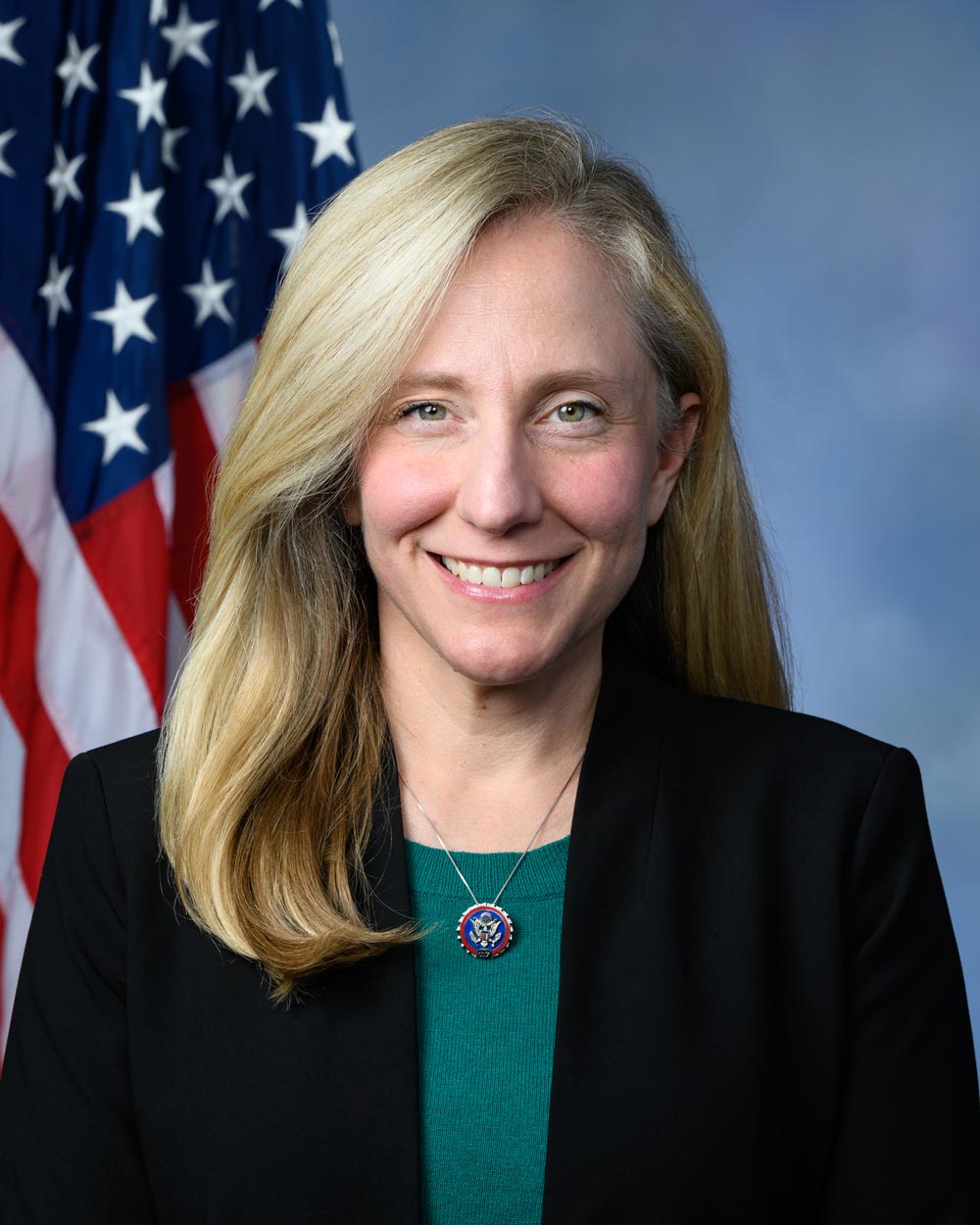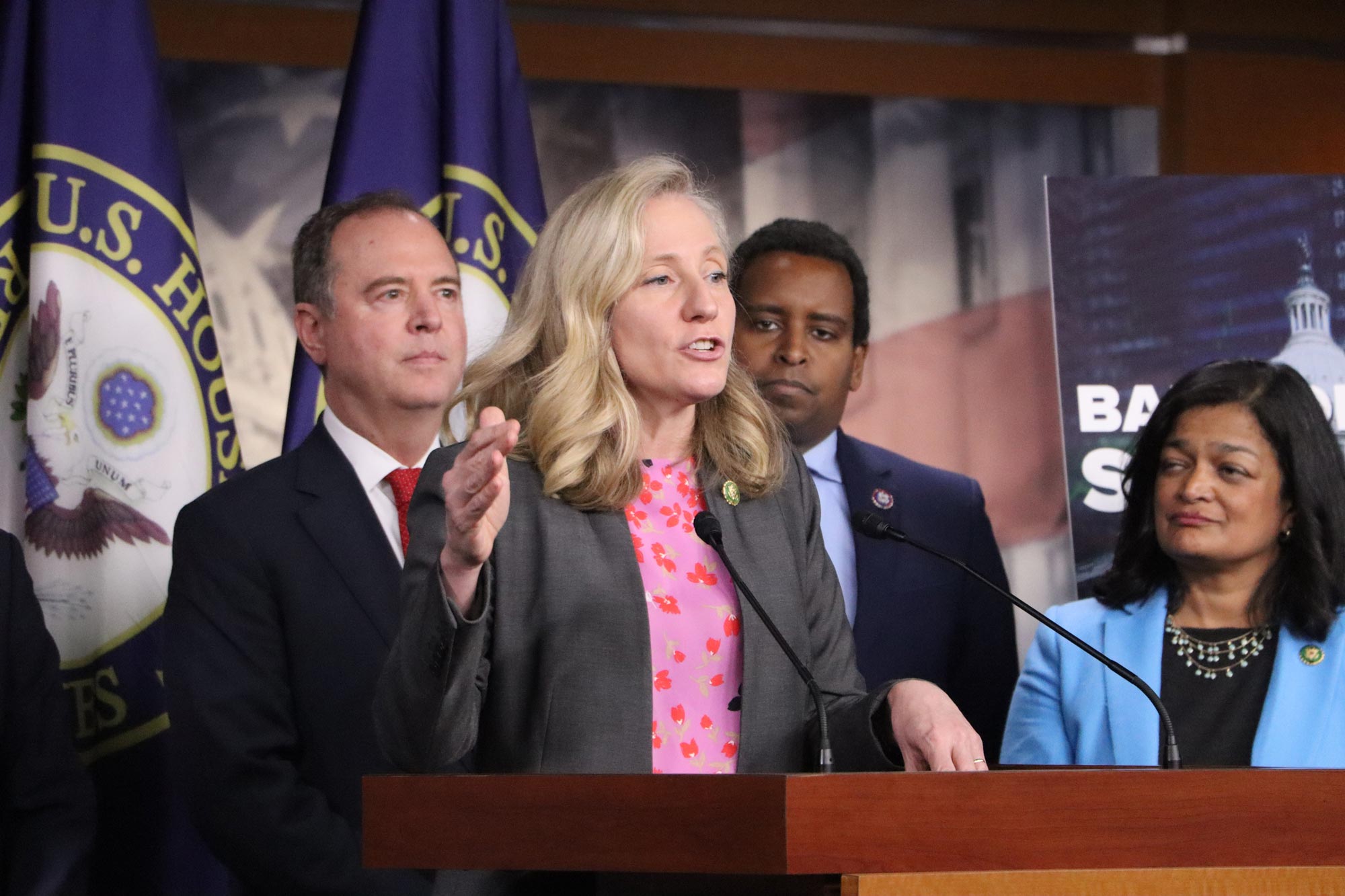U.S. Rep. Abigail Spanberger is heading back to the University of Virginia’s Grounds Monday to speak at the Batten School of Leadership and Public Policy. She’s coming at an opportune time for students interested in national and international affairs.
Recently, and for the first time in the nation’s history, the U.S. House of Representatives ousted its speaker, and it’s not clear when a replacement will ascend to the position. At the same time, the U.S. is trying to fathom how Hamas assembled a military force, including paragliders and bulldozers, to breach Israel’s borders, all without alerting Israel’s vaunted intelligence services.
Intelligence-gathering is something Spanberger, a 2001 graduate, knows a bit about as a former CIA officer and a member of the House Permanent Select Committee on Intelligence. So, ahead of her visit, UVA Today managed to get a few moments with the representative serving Virginia’s 7th Congressional District, which stretches from just above Charlottesville and Richmond to the suburbs of Washington. We asked her about Israel and Hamas, the turmoil in Congress and published reports that she’s considering a run for governor.
Q. What do you make of the intelligence failures in Israel and what does that mean for U.S. intelligence-gathering in the Middle East?
A. The question is whether the information was there and we didn’t connect the dots, or whether it demonstrates that there is a body of potential evidence to be gathered that we currently do not have access to. So, overall, the result of this situation is that we have to do a significant review of what capabilities need to be expanded, and what information we need to get access to in the future.
The idea that a large-scale terrorist attack of this type could have been planned – including recruiting people to participate in the operation, acquiring the hang gliders, to putting the equipment to bust through the wall in place – the fact that all of that could have been readied and we and our Israeli partners kind of missed all the signs, that is a deeply worrisome reality.
Q. The House of Representatives is without a leader. How will that complicate any action Congress may consider regarding the Israel-Hamas war?
A. Let me start with things that are not being impacted within the administration. President Biden has announced that we will be sending additional munitions, some have already been delivered, and “Iron Dome” [missile] interceptors to Israel. That is something the administration has already begun to do, and it is possible to do without additional congressional engagement.
But without a speaker of the House, we cannot pass any legislation. There is a very, very bipartisan resolution that’s been introduced to the Congress with more than 400 cosponsors. It’s a resolution. The action it takes is to affirm a commitment of the United States to our Israeli partners, affirm our collective grieving over the loss of so many civilian lives and make a statement on the House floor of the atrocities that occurred. But that can’t happen.

Spanberger says her UVA education taught her to carefully listen to, and understand, other people’s perspectives. That may be one reason Spanberger has earned a reputation for effectiveness in Congress. (Contributed photo)
Now, that is sentiment and solidarity with our Israeli partners and the victims of the terrorist attack. But the reality is just as we can’t have that resolution, we also are not able to pass a supplemental bill that would ultimately provide additional funding and resources for the next iteration of munitions or Iron Dome interceptors, or other materials that the Israelis will need into the future.
And that is a very, very real concern because that impedes our ability to provide the help and support that they need.
Q. I am not sure anything could prepare you for serving in Congress in this confusing and difficult time, but did anything in your UVA education, including your majors in French language and literature, and foreign affairs, come close?
A. Generally, I think we know that this is so wildly, wildly unprecedented. I do think the skill set that I learned at UVA was a process about really, really thinking critically about issues and really recognizing that in complicated issues, and sometimes in uncomplicated issues, there are no easy answers.
If someone says, ‘This is an easy yes,’ or ‘This is an easy no,’ then perhaps nine times out of 10 they are not understanding the full scope of the question at hand, or they are telling you something that simply isn’t true.
My time at UVA honed my comfort with recognizing the complicated nature of so many things, and spending time perceiving and understanding other people’s perspectives. And ultimately my time at CIA was a masterclass in understanding the nature of complicated issues and the nuance that exists. And I guess now [laughing] I am getting my Ph.D. in complicated, unprecedented issues.
Q. On Monday, you’ll speak to students at the Batten School. If someone asks you, with all the political vitriol, the attacks, the name-calling that seems to dominate public life, is it still worth seeking a career in public service, what will you say?
A. Absolutely, 100%. Without question. And I would say to those who don’t like the vitriol or the dramatic nature of it all, that is the reason you must do it. Because the bottom line is that is the way that we change the political discourse, or improve a political discourse, or define what our commitment is to each other, our community, and our country. That comes when the folks who are doing it for all the right reasons can join in those discussions, and do join in.
So, I think it’s exactly the people who may not like some of what they see – you need to be a part of changing it. And frankly, among the thrill and just the divisiveness, there are a lot of people who have a lot of needs and concerns that get overlooked or are not a part of the larger conversation. So the more people that we have committed to their civic duty and a sense of what their commitment to a country or a community is, the better off we are in those communities we call home.
Q. One final question: Will there be a Wahoo in the Virginia governor’s mansion in 2026? Are you going to run for governor?
A. I haven’t announced anything yet. But certainly I think there is no better place for a Wahoo.
Media Contact
Article Information
May 4, 2024






